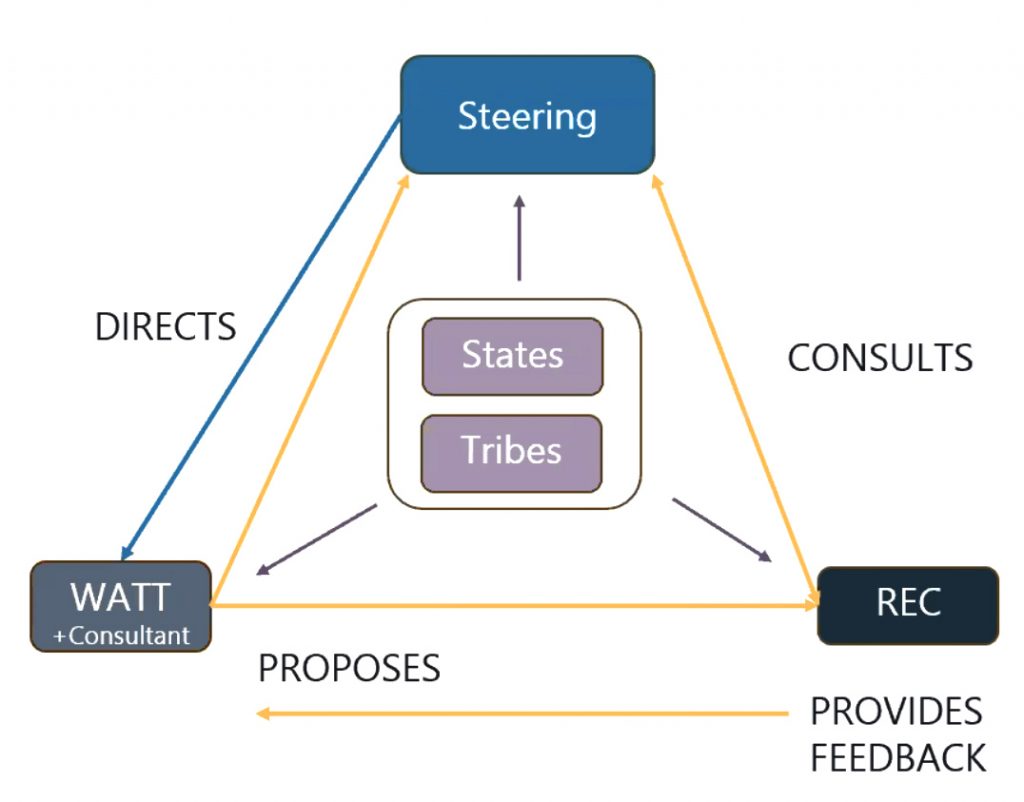
Backers of the recently formed Western Transmission Expansion Coalition want to fill a void in the Western Interconnection by producing an “actionable” interregional transmission study — one that starts with a holistic view of the region’s needs.
“The idea here is that we’re looking at that entire collective footprint, and not just the subregions,” Sarah Edmonds, CEO of the Western Power Pool (WPP), said during a Jan. 29 call to update stakeholders on the WestTEC effort, which was launched last October. (See Plan Seeks to Boost Prospects for New Transmission in the West.)
Edmonds explained the meaning of “actionable.”
“We want to provide high-confidence information to the industry so that if there are parties who are interested in advancing transmission build solutions, they can take the information out of our study, knowing that the study has a high-confidence factor built by all of the different participants,” including states and tribes, she said.
Edmonds reaffirmed that WestTEC won’t try to tackle the especially thorny subjects of transmission cost allocation, siting and permitting, despite the wishes of some stakeholders who provided comments on the effort’s concept paper. (See Western Transmission Initiatives Differ on Dealing with Cost Allocation.)
“We don’t deny that cost allocation, permitting and siting are complicated matters and that, in many ways, this study is the easiest part of a journey towards transmission solutions,” she said. “So when we say ‘high confidence,’ we’re really hoping that the study itself will really grease the skids for future conversations around all of those things.”
Former FERC Chair Richard Glick, now a principal at GQ New Energy Strategies and a consultant for WestTEC, spoke on the call, emphasizing the need to stay focused on the planning end of transmission development.
He pointed to the region’s growing concerns around resource adequacy, rising demand from electrification and increasing instances — and “ferocity” — of extreme weather events. Glick noted also that the Department of Energy’s most recent National Transmission Needs Study noted that the Northwest and Southwest could require an additional 30% of transmission capacity by 2035.
“As I think most people have seen, there’s been some frustration that the current approach to regional transmission planning in the West — particularly outside of the California ISO — has not been very effective,” he said.
Issues of cost allocation and siting are being picked up elsewhere, Glick said. Western state officials have started moving to address regional transmission cost allocation, as evidenced by the state-led Western States Transmission Initiative.
And given the scale of federal ownership of land in the West, siting and permitting are being addressed at the federal level.
“I know the Department of Energy now is taking the lead in terms of being the lead siting agency at the federal government,” Glick said. “There’s a number of bills pending in Congress right now that would attempt to facilitate and improve the transmission siting environment that currently exists.”
‘Biggest Tent Possible’
Inclusivity was a key theme during the call.
“WestTEC is about expanded engagement,” Edmonds said, noting the organization has sought to become West-wide and move beyond the participation of just transmission-owning utilities.
Ben Fitch-Fleischmann, director of markets and transmission at the Interwest Energy Alliance, lauded WestTEC for providing a seat at the table for trade associations such as his. He noted the group’s roster already includes utilities, independent power producers, the region’s three transmission planning entities, National Laboratories, state agencies, tribal representatives and the Western Interstate Energy Board.
“So aiming to pitch the biggest tent as possible,” Fitch-Fleischmann said.
WestTEC will seek to prioritize inclusivity through its proposed governance and committee structure, which would include the Steering Committee, Regional Engagement Committee (REC) and WestTEC Assessment Technical Team (WATT).
The Steering Committee, which will oversee the effort, will be “substantially West-wide in its representation,” Edmonds said. The committee will include representatives from transmission-owning utilities from across the West, the region’s three planning groups — CAISO, NorthernGrid and WestConnect — and WECC.
The REC would seek “a broad membership to make sure we’re aligned with state policy and consumer interests,” according to Fitch-Fleischmann. Its job will be to review the work of the WATT, gain insights from the region and provide feedback.
“We need to ensure we get timely input from a wide range of governmental agencies, public interest perspectives and the like to make sure we can engage with the broader public,” he said.
The WATT will be charged with getting into the weeds around the study.
“This is not a committee where we’re looking for another warm body,” said Chelsea Loomis, WPP manager of regional transmission planning services. “We need people who can really hit the road and contribute with data that will support the study scope. We need to make sure that we are developing the scenarios that support the execution of that study scope. This will be a very busy group.”
Members of the WATT also recently selected consultants to assist in modeling for the study: Energy Strategies, with support from Energy+Environmental Economics.
WestTEC is seeking funding to support its work, just like another big effort taking shape in the Western electricity sector: the West-Wide Governance Pathways Initiative. Edmonds said WestTEC recently completed an application for a DOE grant that seems “tailor made” for its work.
“But I really want to emphasize that it is not a condition for us moving forward,” she said. “We’re going to find a way to fund this amongst ourselves, and if DOE funding comes along, that will be very helpful. But we’re not waiting around for that determination.”



